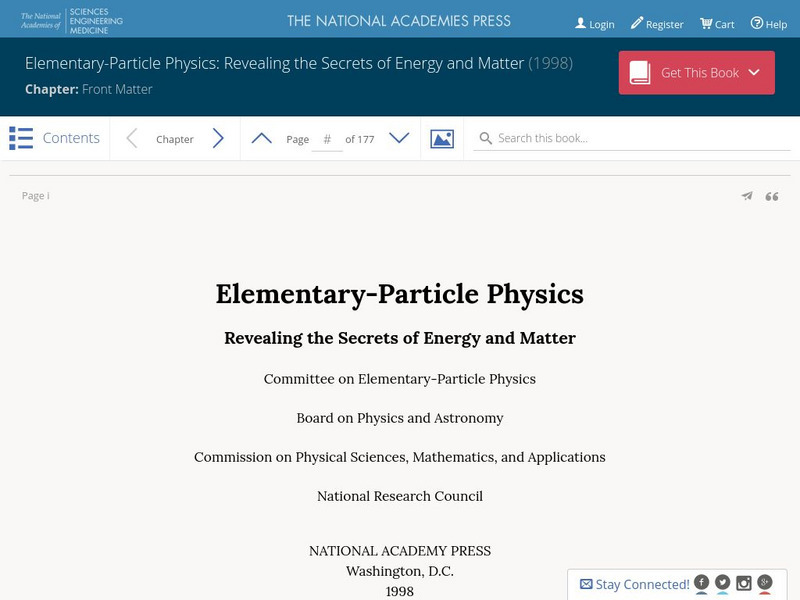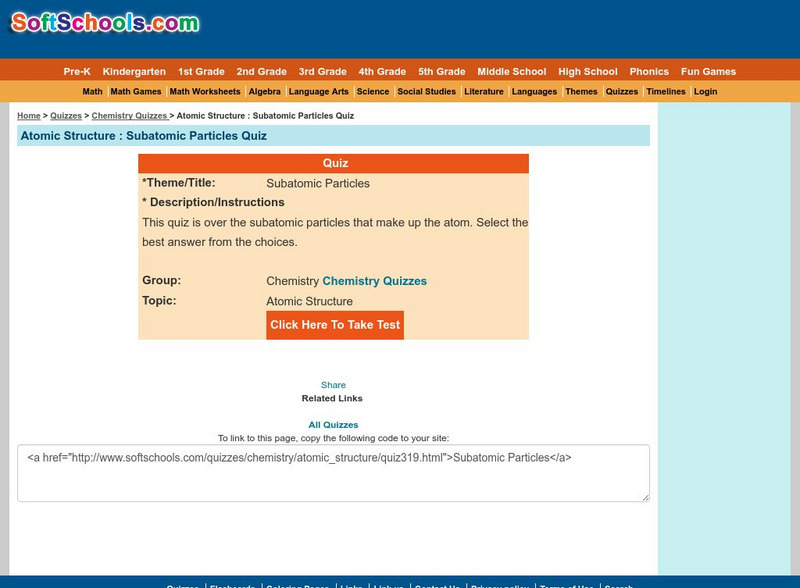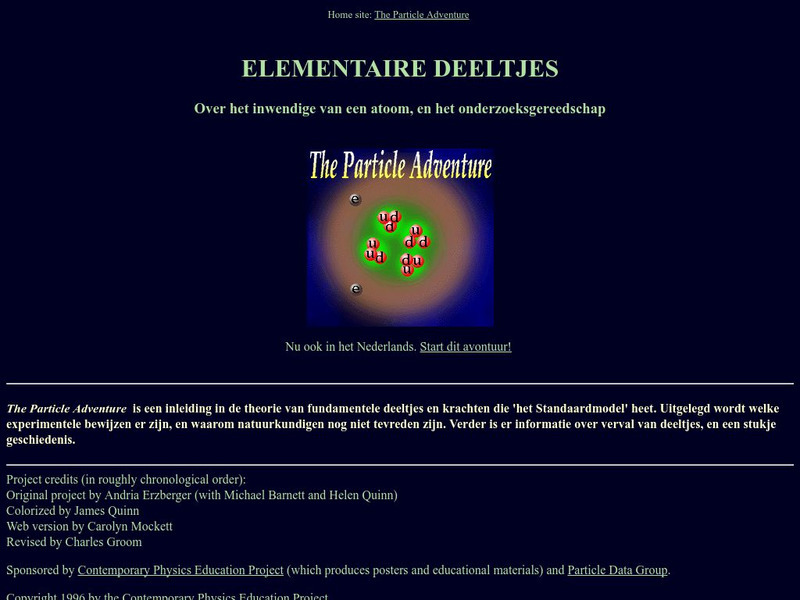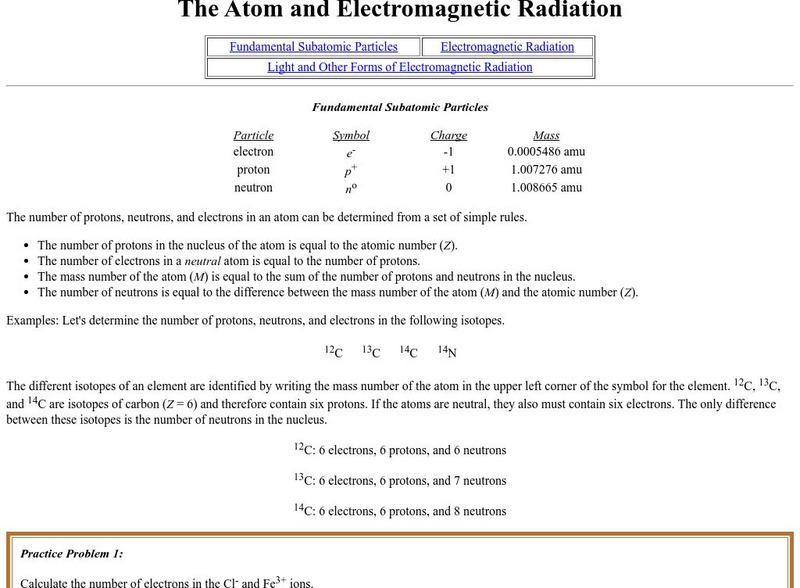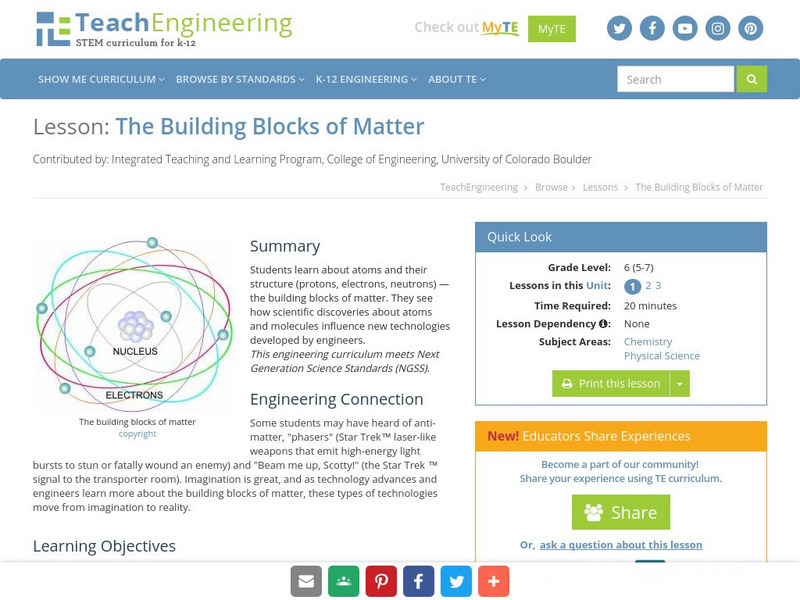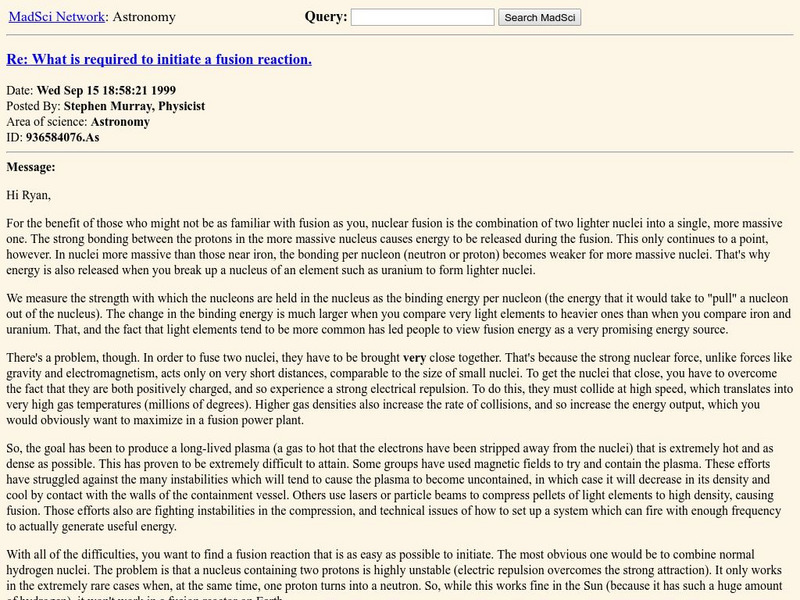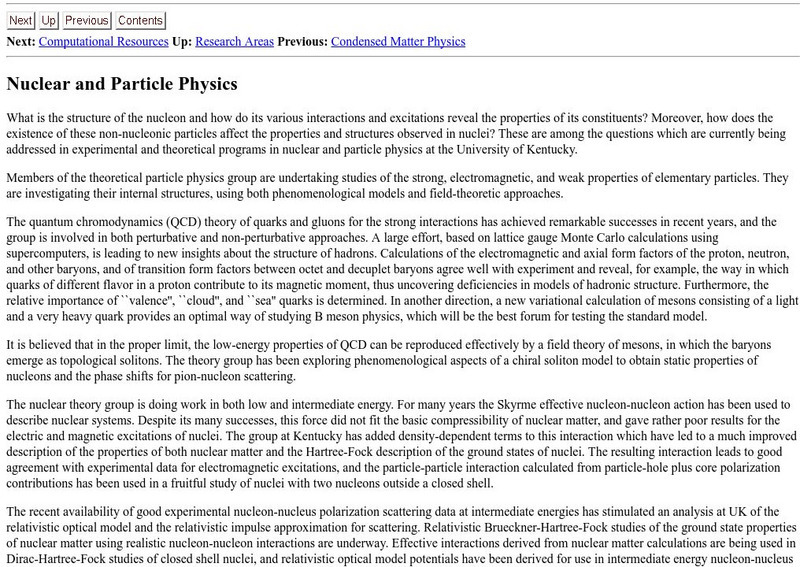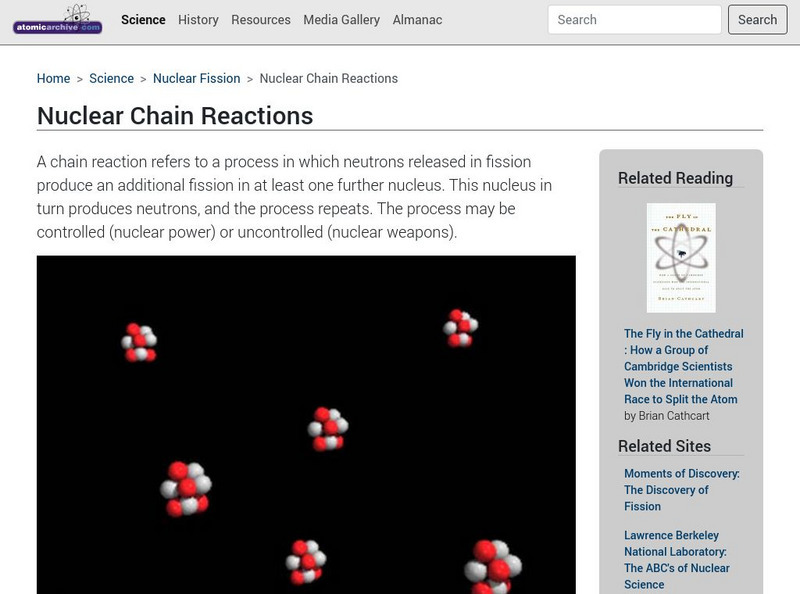Other
University of Kansas: Quarked!: Baryon Blaster
Try to fill each SUV with the right kinds of quarks as it travels across the screen, in order to make different types of baryon particles. The game becomes more challenging as you progress through the levels.
Other
University of Kansas: Quarked!: Matter Mechanic
Build elements and molecules using neutrons, protons, and electrons. Choices include helium, carbon, oxygen, aluminum, water, and salt.
Other
A World of Particles: The Neutron
A World of Particles offers a history of the discovery of the neutron, an exclusive particle in an atom.
Sophia Learning
Sophia: Subatomic Particles: Lesson 2
Describe the $ifference between the subatomic particles, including their masses, locations, and charges. This lesson is 2 of 7 in the series titled "Subatomic Particles."
Famous Scientists
Famous Scientists: James Chadwick
Read this article which describes the life and accomplishments of James Chadwick, the scientist that discovered the neutron.
Other
National Research Council: Elementary Particle Physics
The Committee on Elementary-Particle Physics, part of the U.S. National Research Council, presents this massive report on particle physics. It's a definitive document. Surprisingly readable, totally detailed. Start with the Table of...
Nobel Media AB
The Nobel Prize: James Chadwick Biographical
This sites provides a definitive biography of Chadwick presented by the Nobel (Prize) e-Museum.
CK-12 Foundation
Ck 12: Plix: Build Some Helium: Atoms to Molecules
[Free Registration/Login Required] Build your own helium atom and make sure it has the correct number of protons, electrons, and neutrons on this site. Site also includes a small quiz on the topic.
CK-12 Foundation
Ck 12: Chemistry: Neutrons
[Free Registration/Login may be required to access all resource tools.] Explores the discovery and properties of the neutron and the process of nuclear fission.
Chem4kids
Chem4 Kids: Atoms: Neutrons
Students will find an explanation of the neutron particle located inside the atom's nucleus. Website also defines isotopes and the process of radioactive decay.
Soft Schools
Soft Schools: Subatomic Particles Quiz
Take this interactive, multiple-choice quiz over subatomic particles, then review your score and any missed questions at the end.
Other
Particle Adventure Dutch Version
Dutch version of the well-known "Particle Adventure" physics website that teaches students about atoms, mass, particle physics, and quantum physics. The site discusses theories related to physics and provides other links related to the...
Atomic Archive
Atomic Archive: Nuclear Fusion
From the Atomic Archive - the online companion to the award-winning CD-ROM. This page defines nuclear fusion and depicts the process by an informative diagram. Includes numerical values which describe the typical energy values for fusion...
Purdue University
Purdue University: Fundamental Subatomic Particles
At this site from the Purdue University, the elementary subatomic particles are described and electromagnetic radiation is detailed. Includes learning exercises and answers.
TeachEngineering
Teach Engineering: The Fundamental Building Blocks of Matter
This lesson plan explores the fundamentals of atoms and their structure. The building blocks of matter (protons, electrons, neutrons) are covered in detail. Students think about how atoms and molecules can influence new technologies...
MadSci Network
Msn: What Is Required to Initiate a Fusion Reaction?
From the Mad Scientist Network web site. Using a question and answer format, this page provides a thorough discussion of fusion reactions. Fusion and fission are compared and contrasted and the mechanisms which must occur to initiate and...
University of Kentucky
Univ Ky Dept of Physics: Nuclear and Particle Physics
Univ of Kentucky research projects address "What is the structure of the nucleon and how do its various interactions and excitations reveal the properties of its constituents?". QCD, the four forces, and nucleon-nucleon interactions are...
Thomas Jefferson National Accelerator Facility
Jefferson Lab: Beta Decay
This site from Jefferson Lab provides a description of beta decay along with two helpful formula examples. Several links are provided throughout this page for additional information on related subjects.
PBS
Pbs: Chadwick and the Neutron
PBS provides a brief overview regarding Chadwick's discovery of the neutron.
Atomic Archive
The Atomic Archive: Nuclear Chain Reactions
A couple of pages of text and graphics describing nuclear chain reactions. The means by which neutrons intiate and sustain a reaction is explained. A second page describes the complications associated with uncontrolled nuclear chain...
Other
American Institute Physics: Quark Stars
Collapsed stars, between white dwarfs and black holes, can be studied as quark-gluon masses, or quark-hyperon groups. Extreme pressures lead to extreme states.
Quia
Quia: Mr. Snyder's Game of Atomic Terms
A short matching quiz on basic terminology related to atomic structure. Answers provided.
New York University
New York University: Law of Conservation of Energy
Site presents a straightforward presentation of Rutherford's work concerning the Law of Energy Conservation. Provides an adequate summary of early science on the nucleus, and includes much needed illustrations.
Sophia Learning
Sophia: Isotopes: Lesson 9
This lesson will define an isotope and explain what happens if the number of neutrons in an atom changes. It is 9 of 9 in the series titled "Isotopes."







